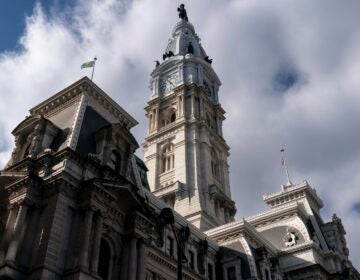Green wants tax-exempt nonprofits to pass yearly test
WHYY/NewsWorks and the Daily News recently found that some Philadelphia nonprofits were getting tax breaks that they may not have deserved.
Now, City Councilman Bill Green wants to make sure that doesn’t ever happen.
Many Philadelphia nonprofits are exempt, by law, from property taxes. Green introduced a bill last week that would force tax-exempt nonprofits to certify every year, under penalty of perjury, that they are eligible for the break as “purely public charities.”
Nonprofits must use their properties for charitable purposes in order to be exempt, according to legal experts. Green said he knows that some institutions aren’t doing that, but they continue to get a pass anyway.
“I am aware of some specific properties that I think there’s commercial activity happening in, whether it’s small charities who’ve retrenched and are renting out space to commercial tenants,” he said, “or it’s extraordinarily large institutions who are arguably competing with private business.”
Last month, WHYY/NewsWorks discovered that the city of Philadelphia was exempting some nonprofits from property taxes, even though the IRS had yanked their tax-exempt status. In one case, it was unclear whether a flagged nonprofit existed at all.
If successful, Green thinks his bill could convince some nonprofits to give voluntary “payments in lieu of taxes,” or PILOTs, to the city.
In 1995, then-Mayor Ed Rendell helped convince nonprofits to hand over more than $9 million in PILOTs to the city. In return, the city didn’t challenge their tax-exempt status. By 2011, those annual payments dwindled to $383,700.
“It may promote people deciding to enter into payment in lieu of taxes agreements, as is what happened in the Rendell administration,” Green said. “Many organizations didn’t want to have to fight that they were charities.”
Nonprofits such as the University of Pennsylvania have argued that they employ large numbers of people who pay city wage taxes. They also provide services like police support.
Green said that if more nonprofits pay up, that probably would not significantly change how much residents pay in property taxes next year.
WHYY is your source for fact-based, in-depth journalism and information. As a nonprofit organization, we rely on financial support from readers like you. Please give today.




